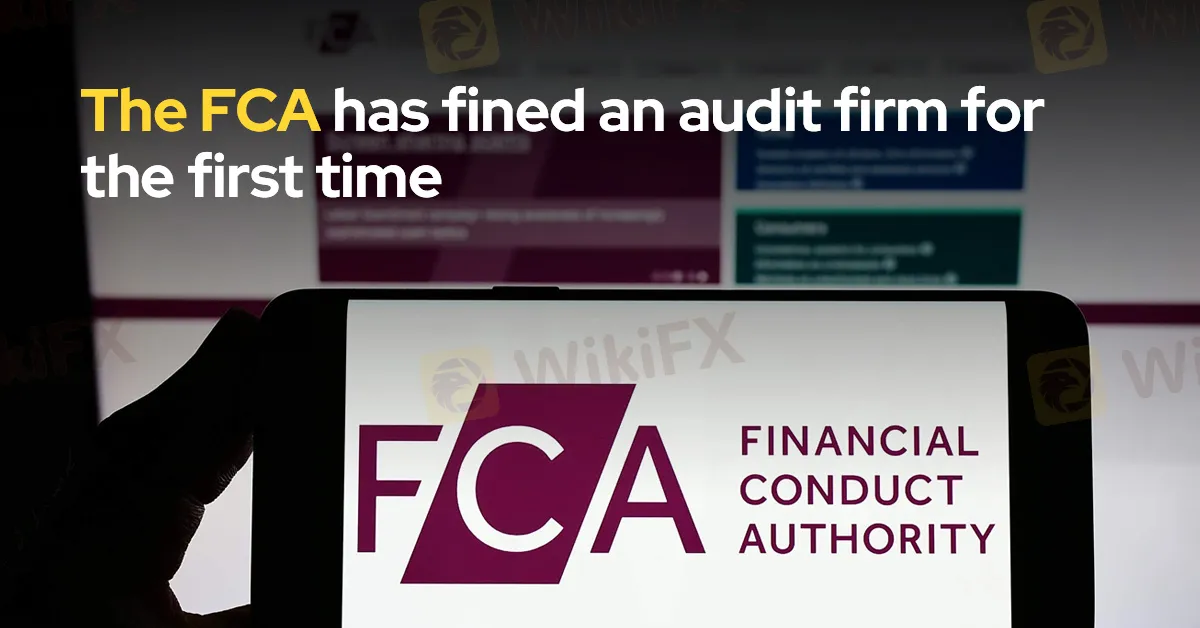简体中文
繁體中文
English
Pусский
日本語
ภาษาไทย
Tiếng Việt
Bahasa Indonesia
Español
हिन्दी
Filippiiniläinen
Français
Deutsch
Português
Türkçe
한국어
العربية
The FCA has fined an audit firm for the first time
Abstract:The Financial Conduct Authority (FCA) has imposed a fine on PricewaterhouseCoopers LLP (PwC) for the first time, marking a significant development in the regulation of audit firms. The fine was issued due to PwC's failure to report suspicions that London Capital & Finance plc (LCF) might be involved in fraudulent activity during their audit of the company's 2016 accounts.

The Financial Conduct Authority (FCA) has imposed a fine on PricewaterhouseCoopers LLP (PwC) for the first time, marking a significant development in the regulation of audit firms. The fine was issued due to PwC's failure to report suspicions that London Capital & Finance plc (LCF) might be involved in fraudulent activity during their audit of the company's 2016 accounts.
The audit of LCF in 2016 presented numerous challenges for PwC. A senior individual at LCF exhibited aggressive behavior toward the auditors, and the firm provided inaccurate and misleading information throughout the process. These issues made the audit exceptionally complex, leading to delays and raising concerns within PwC about the legitimacy of LCF's operations.
Despite these red flags, PwC ultimately concluded that LCF's 2016 financial statements were accurate. However, PwC had developed suspicions during the audit that LCF might be involved in fraudulent activities—a concern that they were legally obligated to report to the FCA. PwC's failure to report these suspicions, whether they persisted or not, is the basis for the FCA's fine.
LCF's downfall began in January 2019 when the FCA ordered the company to retract misleading promotional material related to the sale of mini-bonds, a move that led to the firm entering administration. The promotional material had misled thousands of investors by not fully disclosing the risks associated with the products. The Serious Fraud Office (SFO) is currently conducting a criminal investigation into the collapse of LCF, further underscoring the gravity of the situation.
Therese Chambers, Joint Executive Director of Enforcement and Market Oversight at the FCA, emphasized the critical role auditors play in maintaining market integrity. She stated, “Auditors have a central role to play in keeping our markets clean. They have privileged access to information and they are required by law to report suspicions of fraud to the FCA. There were several red flags that led PwC to suspect fraud. They should have acted on them immediately. Their failure to do so deprived the FCA of potentially vital information.”
This unprecedented fine serves as a stern reminder to audit firms of their responsibilities in identifying and reporting potential fraud, reinforcing the FCA's commitment to safeguarding the integrity of the financial markets.

Disclaimer:
The views in this article only represent the author's personal views, and do not constitute investment advice on this platform. This platform does not guarantee the accuracy, completeness and timeliness of the information in the article, and will not be liable for any loss caused by the use of or reliance on the information in the article.
Read more

CMC Markets: A Closer Look at Its Trading Environment
CMC Markets provides access to four trading platforms: MetaTrader 4 (MT4), MetaTrader 5 (MT5), TradingView, and its proprietary web platform. Each platform supports different tools, asset classes, and execution features.

Forex Trading Lot Size: Decide it Right to Reap the Right Results
Determining the right forex trading lot size is pivotal to enjoying a long run in the forex market. Go through this guide to know how to do it.

Can Your Financial Literacy Protect You from Scam Brokers?
You can protect yourself from any kind of investment scam trough your financial Literary . Financial literacy is your strongest defense against investment scams. While the digital age brings countless benefits, it also opens the door to new risks. One growing concern is the steady rise in scam brokers within the forex market.

Scam Alert: 5 Key Reasons to Avoid BazaarFX at All Costs
Before You Act, It's Always a Good Idea to Review Any Broker Thoroughly Know about it first—and only then invest your hard-earned money with the broker. Below are five crucial reasons why you should not choose BazaarFX. Otherwise, you may end up becoming a victim.
WikiFX Broker
Latest News
The Dollar Keeps Falling: How Should We View Exchange Rate Volatility?
Asia-Pacific markets rise as investors parse a slew of data releases
Asia-Pacific markets mostly rise as investors parse a slew of data releases
WikiFX Gala Night Malaysia Concludes Successfully
IG Group Unlocks Over £425 Million amid a Capital Reduction
Gold Prices Fall by INR 39,300 in the Last Week? What's Next Week's Outlook?
European stocks open slightly higher as UK-U.S. trade deal cuts autos, aviation tariffs
Treasury yields tick lower as Trump's spending bill in focus
European stocks mixed as UK-U.S. trade deal cuts autos, aviation tariffs
Ripple and SEC Drop Appeals, Bringing 5-Year Legal Saga to a Close
Currency Calculator


